UPDATE: This story has been superseded by the move of the City Council of Puerto Princesa to postpone the trike ban while waiting for the DOTr’s opinion. Full story here.
In less than two weeks from now, no more tricycles will be seen plying national roads in the City of Puerto Princesa as the local government is set to strictly implement the ban of trikes on national highways starting February 1.
“Gusto kong ipaalam sa inyo na may order ‘yung DILG sa [PNP] Highway Patrol Group na alisin ‘yung mga traysikel sa mga national highway,” City Mayor Lucilo R. Bayron explained during the dialogue attended by members of tricycle operators and drivers’ association (TODA) yesterday, Jan. 18 at the City Coliseum. Mayor Bayron was accompanied by other City Government officials, DILG-Puerto Princesa City, City Traffic Management Office (CTMO), Puerto Princesa City Police Office (PPCPO) and PNP Highway Patrol Group.
For years, the move to crackdown tricycles and pedicabs on national roads and highways is subject to heated debate and gain negative feedback from affected sectors, particularly the tricycle drivers.
In consideration, the local government of Puerto Princesa, thru the 15th Sangguniang Panlungsod passed, an ordinance last 2017 designating the outer lane of the two national highways as public utility vehicle and motorcycle lanes.
But the said measure will only be short-lived as the Department of the Interior and Local Government (DILG), the overseer agency to all affairs of LGU’s, PNP, among others, has sent a Memorandum Circular No. 2020-004 dated Jan. 10 with a stiff order that “within 60 calendar days, significant results must be achieved, documented, and reported together with the efforts of the LGU’s….”
For more than just two months before the deadline, the City Government has no choice but to follow the order so that further problems will be avoided. The new memorandum is actually based on an older one, the DILG Memorandum Circular No. 2007-01, issued last Jan. 11, 2007.
“Ngayon, kung halimbawang hindi tayo susunod at ipinatupad ng PNP [‘yan], ano’ng magagawa natin? Anong magagawa ninyo [kung] pinanghuhuli na kayo riyan dahil bawal ‘yan? Ipinatupad na ng Highway Patrol dahil sila ay may order, sila ay may karapatan, so pare-parehas tayong mapupurnada! So, bago nila ipatupad ‘yan, unahan na natin na nangingialam ang lokal na pamahalaan,” Bayron further explained.
But due to the lack of available public utility vehicles, the City Government has come up with a compromised agreement, a win-win solution, both for the part of TODAs, the riding public, and the local government.
“Mabuti na lang may pasubali roon…na ‘Makipag-coordinate kayo sa mga lokal na opisyal.’ Siyempre, ang mga lokal na opisyal, hindi lang ang tinitingnan ay ‘Dapat ba ‘yan o hindi?’ Tinitingnan ang kapakanan ng kabuuan ng lungsod. So, dahil doon kailangan nating mag-come-up sa compromised agreement]. Hindi lahat ng kailangan ng isang commuter, hindi lahat ng kailangan ng isang drayber, masasagot nito—mayroon talagang mga sakripisyo na kailangan nating gawin….Kailangan talaga ‘yung mga commuter magsakripisyo,” Bayron added.
Under the compromise agreement laid down by the City Government during the dialogue, tricycles and pedicabs can still use the Malvar St., Rizal Avenue extension after Dagomboy Road, the south national highway starting at Tiniguiban and the north national highway after the Santol Road in Bgy. San Jose. They cannot pass through the north national highway up to the corner of Socrates Road, Rizal Avenue up to Rizal Avenue extension until Dagomboy Road and the south national highway up to Santol Road in Bgy. San Jose.
In a separate interview with City Councilor Elgin Damasco, Committee on Transportation chairman, he reiterated that the ban of three-wheeled vehicles in national highways and roads does not emanate from them but is an order from DILG, in accordance to President Rodrigo Duterte’s (PD30) directive.
“Ang problema nila ay maapektuhan ‘yung kanilang hanapbuhay, kaya lamang ang ginigiit natin dito, hindi ito batas ng lokal…kundi batas ito ng DILG kaya wala tayong magagawa. Kaya hanapan na lang natin ng ‘win-win solution’ kasi ang general [directive], bawal [sila] sa national highways pero binigyan kami ng batas ng pagkakataon at karapatan na gumawa ng batas para idetermina kung saan ‘yung mga alternate route,” Damasco said.
“So, na-identify ‘yung mga alternate roads, ibig sabibin, hindi lahat ng national highway ay hindi sila pwedeng dumaan. Mayroong bahagi ng national highway na pwede silang dumaan,” he added.
In accordance with this, the City Council will craft an ordinance, to be certified as “urgent” by the City Mayor, for alternate road and route and for appropriate penalties.
“Gagawa tayo ng ordinansa, doon malalaman kung magkano ‘yung [ipapataw] na penalties pero sa ngayon, dahil i-implement na ‘yan ngayong February 1, ‘yung penalties ng national law, ng LTO, ‘yun ang masusunod; medyo malaki ‘yun,” he said.
According to Damasco, he understands the plight of the tricycle drivers and the riding public but he reiterates that they cannot supersede a national law and they have to implement it.
“Kung hindi namin i-implement sa lokal, makakasuhan kami sa Ombudsman katulad ng ginawa ng DILG doon sa sampung mayors na hindi sumunod sa kanilang direktiba. At kung hindi kami mag-i-implement, ‘yung Highway Patrol [Group], ‘yung LTO, i-implement na nila, hindi man namin sila under, under sila ng national government, mas mahirap,” Damasco exclaimed.
With this order and the implementation of stiffer penalty for major traffic violations in the City, Damasco said that he even receives feedback that he will lose in the next election.
“May mga nagbabanta na nga na baka tayo ay hindi na mananalo sa susunod na eleksyon. So, be it! Hindi ako natatakot! Mabubuhay ko ang pamilya ko kahit wala ako sa pulitika. Pero gusto kong maintindihan nila na hindi ito batas ni Elgin Damasco, hindi ito batas ni Mayor, batas ito ng national government,” he said without hesitation.
While according to Mr. Joseph Parcia, president of Irawan-Sicsican Tricycle Operators and Drivers Association (IS-TODA), even though this would be a tough fight for them but he said that they also understand on why the law has to be obeyed.
“Mayro’n sana tayong reklamo eh, unang-una apektado talaga [kami] dahil nga ‘yang Rizal Avenue hindi kami makadaan. Siyempre, hanapbuhay namin ‘yun eh…doon kami kumukuha ng pampaaral so mga anak namin, pangkain sa araw-araw. So, medyo mabigat din sa amin ‘yun,” he said. “Ang problema galing national ‘yung batas, so, wala tayong magagawa….”
If the alternate route will be fully implemented, he said that it would greatly affect their daily earnings. As for him, all his income from driving a tricycle will be allocated for their daily needs and for the studies of his children who are now in elementary and college.
“Malaking epekto sa kita ‘yun…malaki ang maibabawas no’n sa arawĺļ-araw. Kasi sa ngayon, kumikita kami ng P600-P700, [kapag ito naipatupad na], baka P400 na lang ang magiging kita namin].”
And if worse comes to worst that they will no longer be allowed to use even the alternate routes, he said that they are already bracing themselves.
“Mayroon naman kaming mga kanto-kanto roon sa [Bgy.] Irawan o Sicsican, siguro kapag dumating talaga ang oras na hindi na talaga pwede [sa mga national highway], doon na lang kami magpapasada sa mga kanto-kanto,” Parcia said.


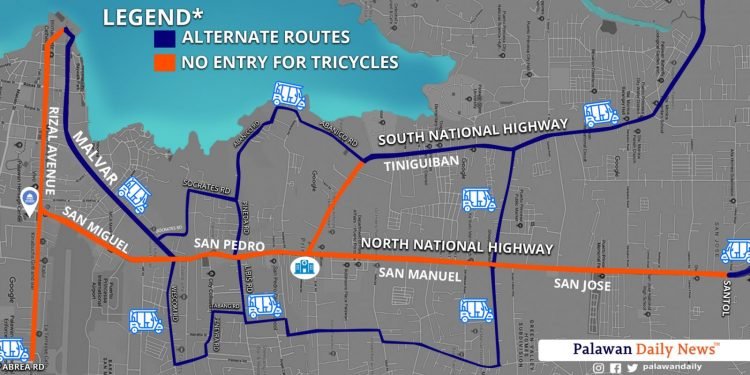

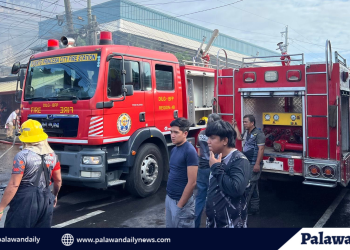
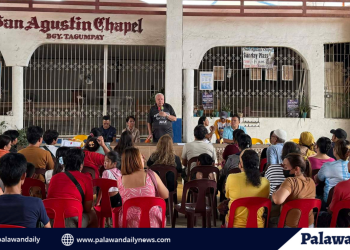
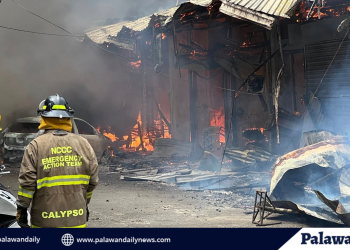
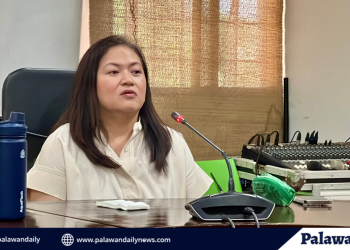
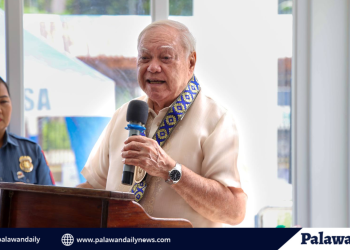
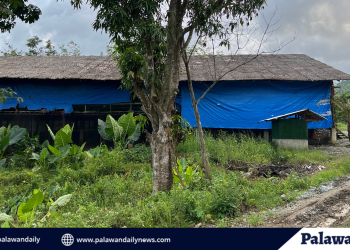









Discussion about this post